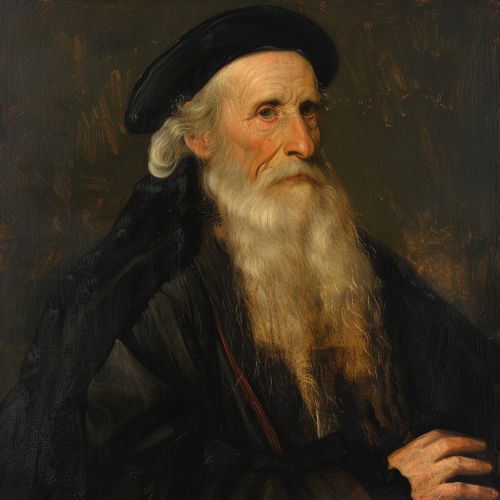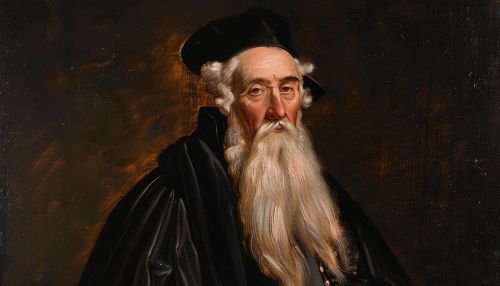John Dee
Early Life and Education
John Dee was born on July 13, 1527, in Tower Ward, London, England. His father, Roland Dee, was a minor courtier and a mercer. Dee's early education was at the Chelmsford Chantry School, after which he attended St. John's College, Cambridge, where he earned a Bachelor of Arts degree in 1545. He was a diligent student, excelling in mathematics, astronomy, and other scientific disciplines. Dee's intellectual pursuits were not limited to the sciences; he also studied classical languages, philosophy, and alchemy.
Career and Contributions
Mathematics and Astronomy
Dee's contributions to mathematics and astronomy were significant. He was an advocate for the adoption of the Gregorian calendar in England and wrote several influential works on navigation and mathematical sciences. His most notable work, "Propaedeumata Aphoristica," published in 1558, dealt with the application of mathematics to astrology and was highly regarded by his contemporaries.
Alchemy and Occult Studies
John Dee is perhaps best known for his extensive work in alchemy and the occult. He believed that these studies were essential for understanding the natural world and the divine. Dee's interest in the occult led him to develop a complex system of angelic communication, which he termed "Enochian." This system was purportedly revealed to him through a series of scrying sessions with his associate, Edward Kelley. Dee meticulously documented these sessions, which he believed provided insights into the divine and the structure of the universe.
Advisor to the Queen
Dee served as an advisor to Queen Elizabeth I, providing counsel on matters of science, navigation, and astrology. He was instrumental in the planning of voyages that would lead to the expansion of the British Empire. Dee's expertise in navigation was particularly valuable, and he trained many of the navigators who would later undertake significant exploratory missions.


Later Life and Legacy
Decline and Disfavor
In the latter part of his life, Dee's fortunes declined. His association with the occult and his controversial practices led to suspicion and disfavor. After the death of Elizabeth I, Dee lost his position at court and struggled financially. He spent his final years in relative obscurity, dying in Mortlake, Surrey, in 1608 or 1609.
Influence and Modern Perception
Despite the controversies surrounding his life, John Dee's work has had a lasting impact on various fields. His contributions to mathematics and navigation were foundational, and his occult studies have continued to intrigue scholars and enthusiasts. Dee's life and work have been the subject of numerous books, articles, and fictional portrayals, reflecting his enduring legacy.
